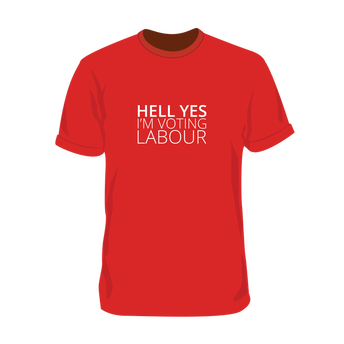I would challenge his reference to President Obama who inherited a nation in 2008 spiraling out of control in the Great Recession and unemployment was over 7 percent and much high in some states. In 2015 it’s below 5 percent. The country was on a course for a Depression, but thanks to President Obama it was avoided. Also, millions of Americans were without health insurance, and the Affordable Care Act is covering more people every year and is a success. Are Americans better off in 2015 than they were in 2008? Yes, and detractors would be hard pressed to deny it.
In response, Mr Miliband said he was the man to tackle powerful interests but was careful to not overstate the nature of government, which can appear to be slow or ineffective at times. "This is important. I am not looking for euphoria. I know that might sound a bit weird... You don't want politicians saying 'vote for me and on day one the world is transformed'. It ain't going to be like that. Change is hard. Change takes time," explained Miliband. Voter apathy One of the conundrums of our time is voter apathy in free world democracies. In countries where people have been denied free elections in the past, they not only take pride in being able to vote but some even risk their lives to vote or walk miles to a polling place. Women especially covet voting once they are given the right. One of the ways to counter voter apathy in the US is by capturing the youth vote, so voting becomes a source of pride and civic duty. Engaging popular culture and its icons to get out the vote in the United States has been in the forefront since 1990 when “Rock the Vote” was developed and reached out to youth to register to vote. Since then millions of young people have been registered to vote as a result. The organizers realized fusing pop culture, technology, and political awareness was a winning combination to attract first time voters, which could motivate them to participate in government as lifelong activists and voters. The UK also struggles with low voter turnout and apathy and is well reported as being a serious problem in British politics. Researchers found that a large segment of the British population do not vote and are not engaged with the political process. Recent research by Survation on behalf of Lodestone Communications took a detailed look at the attitudes of non-voters on a wide range of issues (non-voters are defined as those who did not vote in the 2010 election; this figure includes those who were too young or otherwise ineligible to vote in 2010), reported by Survation. The findings provide valuable insights into the demographic profile of this group, their outlook on life, the issues they care about and their perspectives on power and politics. Moreover, the survey contains much that will be of interest for anyone trying to understand why people don’t vote, how to persuade them to vote, and the implications for future elections. The findings reveal that voters are more optimistic than non-voters. Non-voters aged 18-34, which is the Russell Brand audience, are less optimistic about the future. On the other hand, voters in the same age group believed life would be better in the future. In 2010 non-voters who said they would vote in the next election were, however, pessimistic about the future. Economic worries were a concern for both voters and non-voters. The top three concerns for young people were not having enough money, not being able to pay bills and fears of an uncertain future. This is a good indication of the areas where politicians should be focusing and prioritizing. The researchers found that voters and the population as a whole seem more likely to want politicians to focus on getting Britain out of the EU (13% of all respondents said this was the one thing they wanted politicians to focus more on, but this figure is far lower for younger people taken separately). This issue is less important to non-voters, who showed greater relative concern for the economy, jobs, and tackling poverty. In the US some believe that if one is not going to take the time to learn about the issues, candidates running for office and voting, then they should not complain. Russell Brand has a unique opportunity to be a model for young voters by “re-branding” his rhetoric. All votes count, and this writer applauds Mr. Miliband for confronting the notorious non-voter and bringing attention to responsible citizenship through government activism and voting. Resources http://www.bbc.com/news/election-2015-32515075 http://www.theguardian.com/culture/2015/apr/21/russell-brand-the-general-election-is-irrelevant-in-the-face-of-inequality http://survation.com/apathy-in-the-uk-understanding-the-attitudes-of-non-voters/
6 Comments
eileen
29/4/2015 04:11:30 pm
Thanks for an interesting slant Dava.
Reply
Dava Castillo
30/4/2015 10:12:39 am
Thanks for reading and commenting Eileen.
Reply
Eileen
30/4/2015 12:18:07 pm
Yes agreed - get out there and vote - people fought for your right to do so in the UK unless you were one of the chosen few.
Hannah
29/4/2015 04:48:01 pm
Thank your for your report. Dava.
Reply
Dava Castillo
30/4/2015 10:23:19 am
Thank you for reading and commenting Hannah.
Reply
Hannah
30/4/2015 01:54:46 pm
Thank you ,Dava, for reading and comment.
Reply
Leave a Reply. |
Dava Castillo
is retired and lives in Clearlake, California. She has three grown
children and one grandson and a Bachelor’s degree in Health Services
Administration from St. Mary’s College in Moraga California. On the
home front Dava enjoys time with her family, reading, gardening, cooking
and sewing. Archives
November 2015
|


